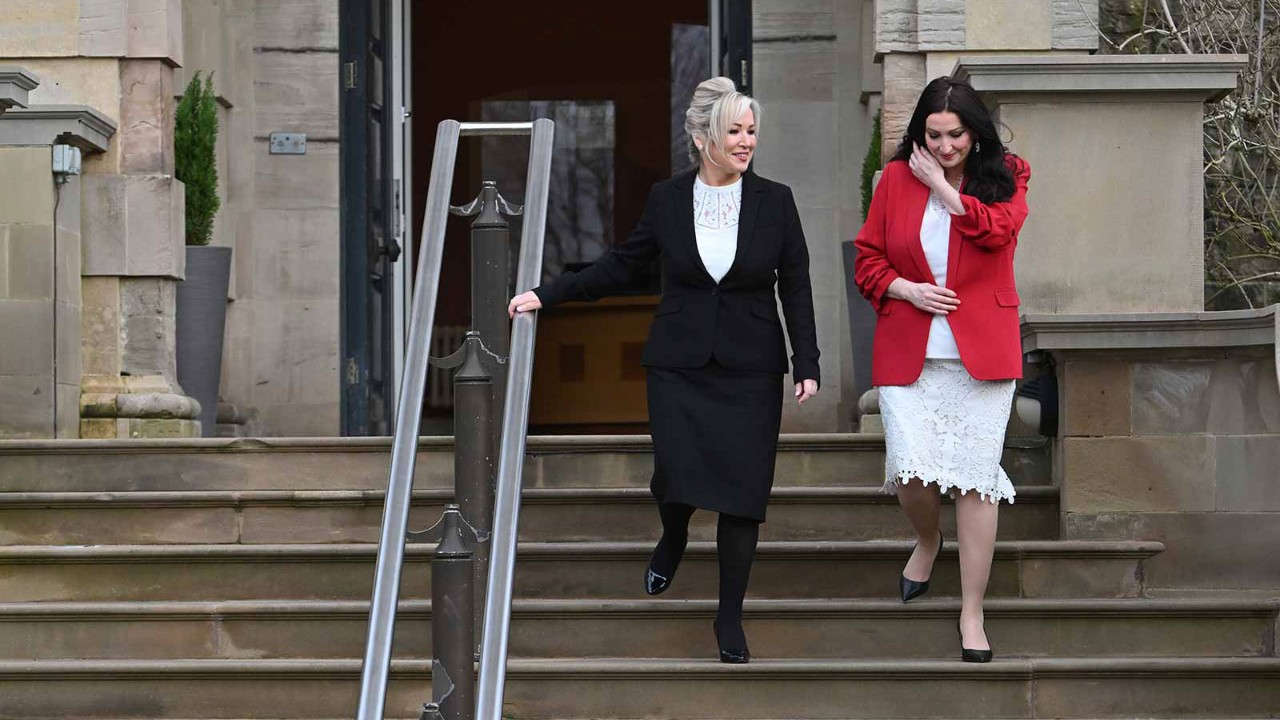
Last year Northern Ireland marked the 25th anniversary of the signing of the Good Friday Agreement. To be sure progress has been made in the last quarter-century as a result of peace, but Northern Ireland’s economy has not fulfilled the potential it was promised, which has infuriated a post-conflict generation who should be enjoying the spoils of the peace process.
The stop-start nature of the power-sharing arrangement has been a constant since the Good Friday Agreement. The process of normalisation was never going to run smoothly, but the breakdown of the institutions has robbed the people of the benefits of peace, which has been particularly damaging given the challenges of the past few years.
Another chance
That future perhaps now has a chance of emerging following the resumption of the institutions under a new generation of leaders. For all of the legacy issues that have dogged the country, its outlook is brighter than the rest of the UK thanks to its unique position of having access to the internal markets of both Britain and the European Union along with the affinity shown for Northern lreland by influential figures in the US. Few places in this world can boast a member of the Kennedy clan as a trade envoy. Those factors alone should have led to greater prosperity than exists today.
Reinvigorating the economy and shifting away from the reliance on the public sector for employment does not require particularly radical moves. The building blocks already in place will suffice. Northern Ireland can boast better educational attainment than other UK regions. What it requires is stability, investment and focus.
Capacity constraints
For a start it should take advantage of the capacity constraints in the Republic of Ireland and attract a greater share of foreign direct investment. Housing and employment costs are lower, and there is a pool of graduates from local universities as well as those in the Republic and Britain. That labour availability alone should appeal to companies that need access to the European market but are struggling with the competitive challenges facing Dublin and other cities in the Republic.
Nothing will change while the risk remains that power-sharing could collapse at any time
There are also opportunities to scale up the creative industries and tourism. Film and television production has been well established in Northern Ireland for many years (the buildings and streets of Belfast will be familiar to viewers of the BBC show Line of Duty). The prospects for growing the sector into a significant employer would be boosted by offering tax incentives comparable to other locations and investing in sound stages to attract major international productions.
Tourism has been helped by Northern Ireland being part of an all-island promotional body. However, there is scope to build this out further by expanding direct flight connections and increasing the frequency of rail links with Dublin.
But what is needed beyond anything else is certainty. Nothing will change so long as the risk remains that the power-sharing administration could collapse at any time. Without certainty, local businesses will continue to struggle and foreign investors will be cautious to commit. Maturity is needed from those elected to the Northern Ireland Assembly and from the executive to ensure stability and finally reap the peace dividend.



